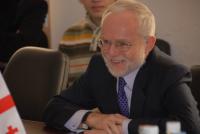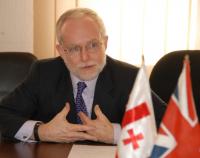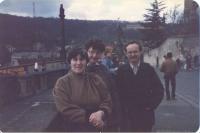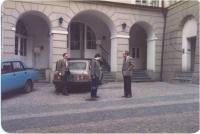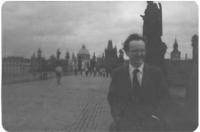The communist regime was simply not able to meet the people’s aspirations and got the the end of the road

Stáhnout obrázek
Denis Keefe was born in England in 1958. He studied Classical Philology at Cambridge and Oxford universities. Since he was interested in languages and foreign cultures, he joined the British Foreign Office. It was decided that he would be placed in Czechoslovakia. He got six months to learn the language and realia of the country, about which he knew very little before. He arrived in Prague in the fall of 1984 with one essential objective: to create a web of contacts between the embassy and the dissidents (which virtually haven‘t existed before). He started from nothing. The first man he contacted was Václav Benda. Thanks to him, Keefe was able to get to many more people from the dissent, as well. When the contacts were established, new possibilities came up. The British wanted to show solidarity for the unjustly prosecuted. Thus, Mr. Keefe personally visited such trials (naturally the only person who found them useful). A couple times, the police forces would physically prevent him from entering a courtroom. He worked at the embassy in Prague until 1988. At that time it was clear, he states, that the face of affairs was unsustainable - because of mainly economic reasons. Mr. Keefe, for instance, reminisces about purchasing his first PC: „It was considered such advanced technology those days (in Czechoslovakia) that I actually had to obtain an export license in the UK to take it behind the iron curtain.“ While leaving Prague, he was an optimist. However, he didn‘t expect such a staggeringly quick end. After the fall of the iron curtain he became member of a team negotiating the possibility of the reunification of Germany and took part in the so called „2+4 talks.“ He returned to Czech Republic in the late 90‘s when he was leading a mission which attempted to prepare the country for entering NATO and, later, the EU. Since 2007, Denis Keefe has been a British ambassador in Georgia.
